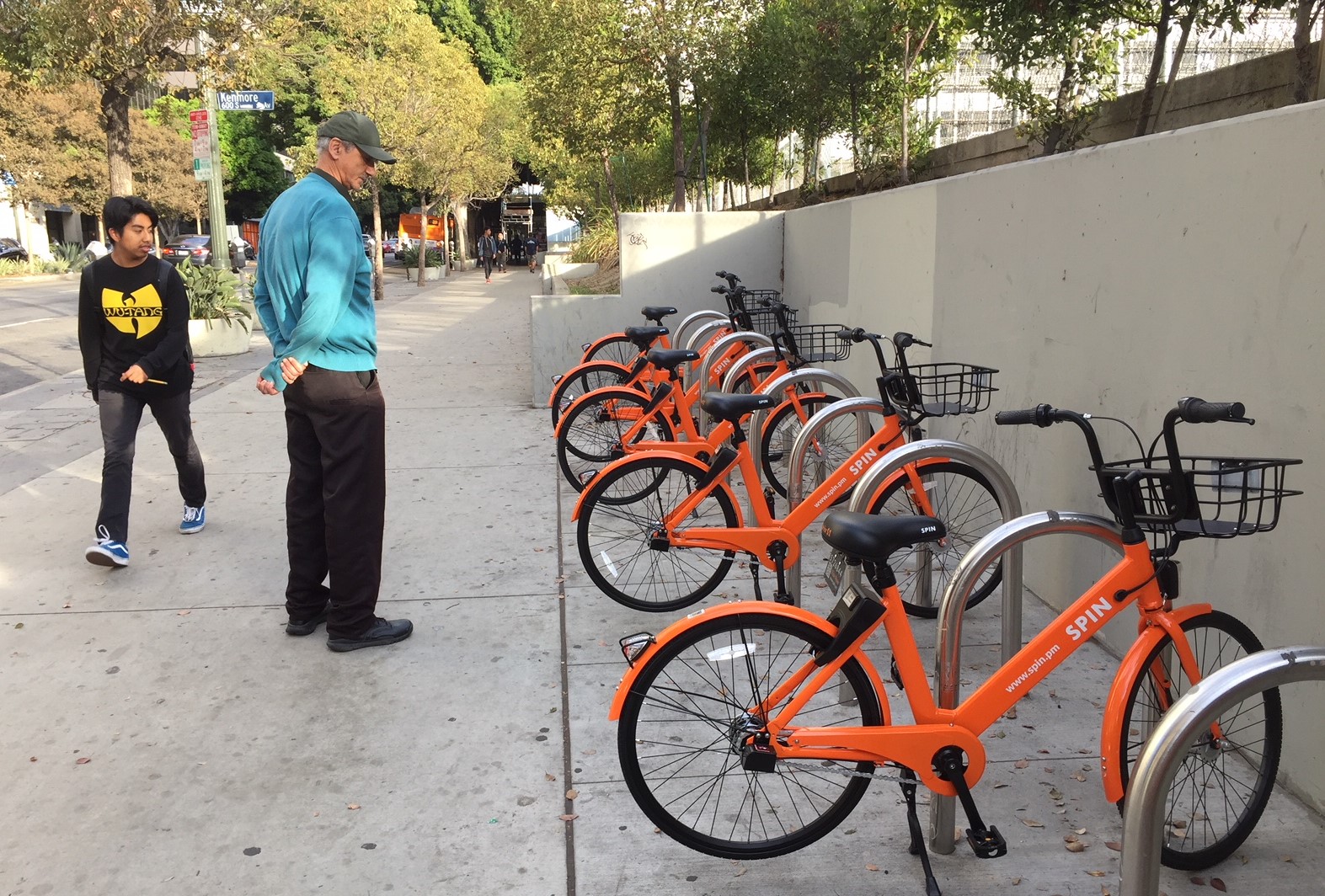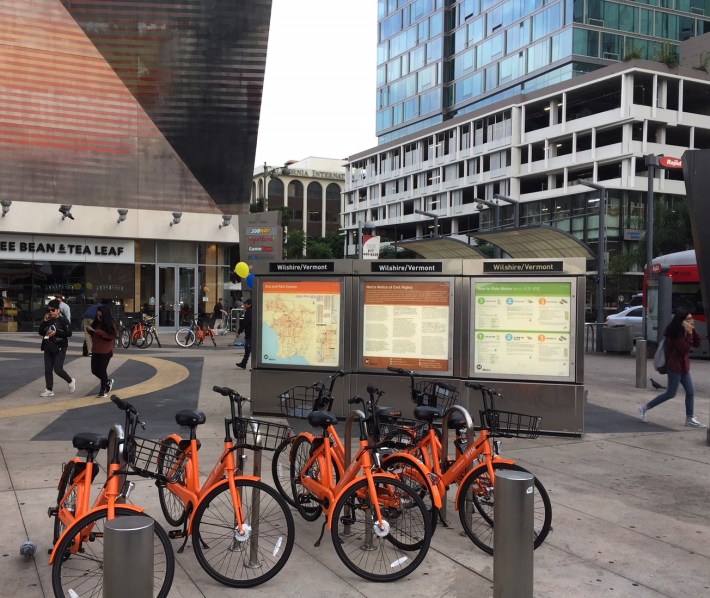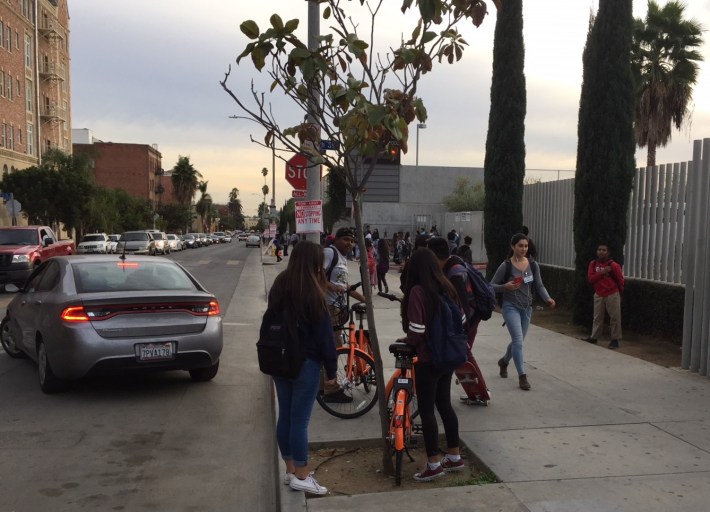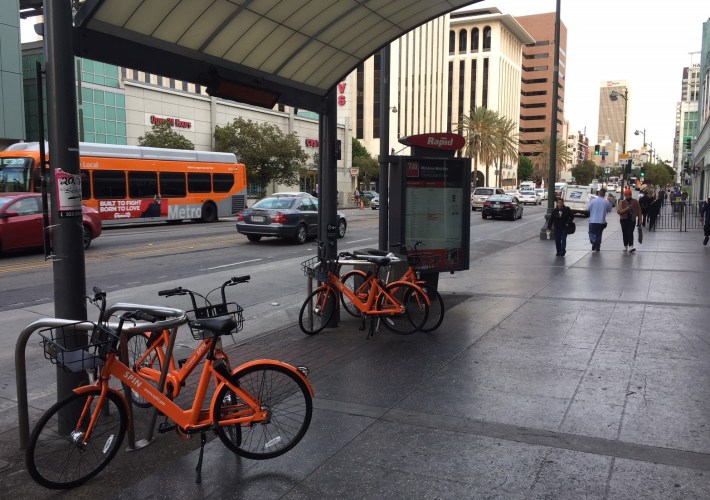
Yesterday morning, social media posts heralded the arrival of bright orange bike-share bikes located at several Koreatown subway stations. The bikes represent the introduction of Spin dockless bike-share into the L.A. market. Yesterday afternoon, Streetsblog spotted plenty of Spin bikes at Wilshire/Vermont, Wilshire/Western, and along the north and east sides of Ambassador School.
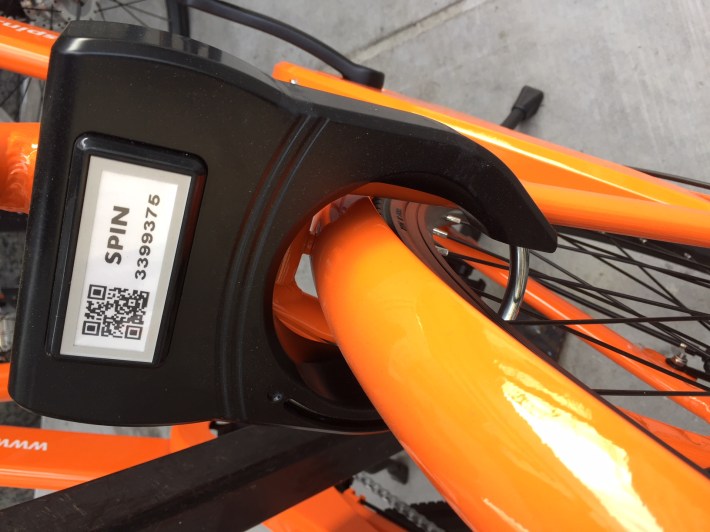
In an email, Spin spokesperson James Moore described the bikes as a "small pilot program in Koreatown as we continue to work diligently with City Council members, DOT and stakeholders." Spin is not "disclosing specifics on numbers at this time" but according to their app, there are about 30 Spin bikes available. (Updated: As of 5 p.m. November 29, Spin has added another dozen bikes.)
Spin is the third for-profit dockless bike-share company to begin operations in the city of Los Angeles. If one counts permitted smart-bike dockless (perhaps dock-optional or dock-light?) systems - Santa-Monica-based Breeze operates in Venice, and Bruin Bike Share at UCLA and in Westwood - then Spin could be counted as the fifth dockless system in the city.
In early November, ofo began "partnering with @LACityParks" to offer dockless bike-share in Griffith Park. The new offering was covered by KPCC and CiclaValley.
Also in early November, LimeBike started a "three-month pilot" of dockless bike-share in Los Angeles City Councilmember Joe Buscaino's district which extends from Watts to San Pedro.
For-profit dockless bike-share has become common in parts of China. Companies have recently expanded to some U.S. cities, including Seattle.
The city of L.A. has not taken any official action to approve or disapprove of dockless bike-share, but the systems appear to have the support of councilmembers Buscaino and David Ryu. Ryu has been skeptical of making streets safer for bicycling, but introduced a motion (council file 17-1125) that calls for a dockless bike-share pilot in the city.
In an earlier SBLA article, Robert Gottlieb described for-profit bike-share's early business model as similar to Uber ride-hailing: "approaching cities [...] without consultation and pushing against any regulation." Dockless companies are scrambling to broadly distribute cheap bikes in order to gain market share. To do this, they burn through venture capital. So, when the dust clears, there is no assurance that private bike-share will be able to operate profitably at its current one-dollar per ride rate.
Especially in comparison with the relatively-robust Metro Bike Share and CycleHop (Breeze, etc.) systems already operating in L.A. County, the for-profit dockless bikes appear to be somewhat shoddily made.
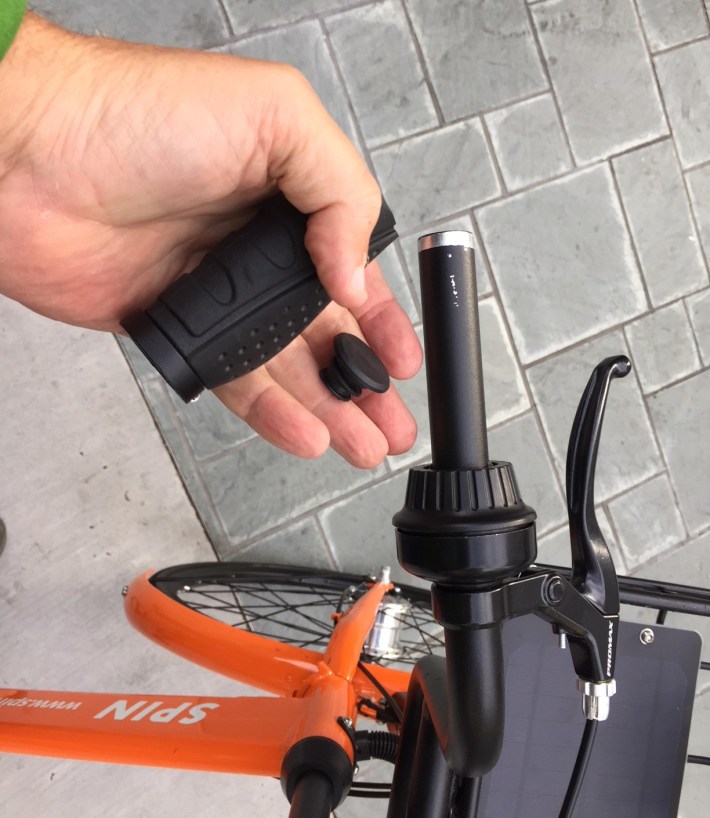
Yesterday, on the first day it was in operation in Los Angeles, the handle-grip was already loose on the one Spin bike Streetsblog L.A. tested out.
In the short run, undependable bikes can discourage casual bike-share users. In the long run, though they become a bigger problem. In China, cheap bike-share bikes are breaking down and cluttering public spaces. As photos show and the Guardian states "Infamous scenes of derelict bicycles piled in mangled heaps have become common sights."
Another problem occurs when private bike-share companies have failed. When users sign-up, the company takes a deposit from the user's credit card. When Chinese bike-share company Bluegogo failed, users were unable to recover their deposits.
For greater Los Angeles, one big question is what effects these bikes will have on existing municipal bike-share systems.
Metro Bike Share and CycleHop (Breeze, etc.) are in place and even expanding. Though agencies and operators have praised their accomplishments, system usage has been sparser than might be expected. LADOT General Manager Seleta Reynolds stated that the $3.50 per ride cost is "too expensive." Metro's pricing structure, with a goal of 80 percent fare recovery (much higher than what Metro expects from its highway, transit, or parking projects), has resulted in bike-share serving a niche ridership. The cost plays a big role in the Metro Bike Share system not serving the needs of low-income communities.
At $1 per ride, private dockless bike-share looks like a huge bargain compared to Metro's $3.50. Also, private bike-share is "free" for cities, in that it operates with no public subsidies.
("Free" here assumes that curb space and even landfill space is free. Private bike-share is not entirely free to the public, though there is no up-front public subsidy. It is also possible that municipalities could regulate private bike-share to avoid these costs.)
The cheaper-for-the-public and cheaper-for-the-customer comparison gets people - including elected officials and agencies - thinking that they should just let the private sector do bike-share, instead of investing public funding to implement municipal bike-share. At a recent talk, Metro innovation chief Joshua Schank stated that there are dramatic changes happening for bike-share with "docks going out of favor." One caveat is that, similar to Uber and Lyft car rides, those dollar bike-share rides are subsidized by venture capital, and when that capital runs out, there is no guarantee that the rides can remain at such low prices.
Will private bike-share bankrupt Metro bike-share? Or will it pressure Metro to reconsider its fare structure? Or will multiple bike-share systems operate simultaneously and independently with little to no effect on each other?
With a lack of political will and limited public investment (not to dwell on an unhelpful low-grade turf-war where Metro stifles CycleHop expansion), it looks like it will take a long time for municipal bike-share to expand to all Southern California neighborhoods where it would be viable. Given the long timeline, perhaps private bike-share can play a role in bringing bikes to places that are not yet on Metro's or CycleHop's radar.
Among these bike-share deserts, are low income areas. In Chicago, the community group Slow Roll Chicago is working with ofo to provide bike-share in low-income communities of color not served by the Divvy municipal bike-share system. In L.A., LimeWire has made a point of sharing visuals that show they are serving the Watts community. Though overall and over time, private companies may be likely to concentrate their mobility services in higher revenue areas, such as tourist-rich Westside beach areas.
For-profit dockless bike-share has potential for good, but also presents potential pitfalls.
What do you think readers? Have you ridden these bikes - in L.A. or elsewhere? Will private dockless bike-share be a good thing for Los Angeles? What role should the city and the community play in fostering benefits and avoiding pitfalls?
